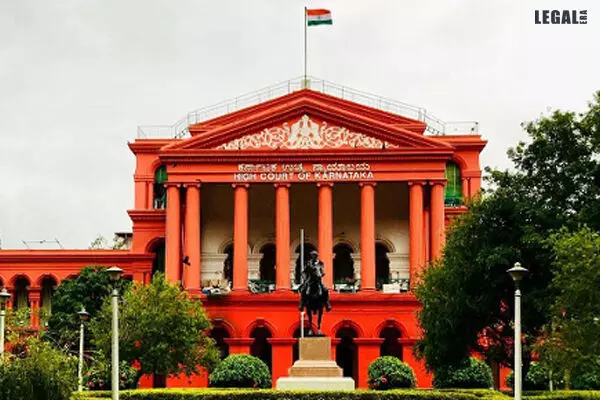- Home
- News
- Articles+
- Aerospace
- Artificial Intelligence
- Agriculture
- Alternate Dispute Resolution
- Arbitration & Mediation
- Banking and Finance
- Bankruptcy
- Book Review
- Bribery & Corruption
- Commercial Litigation
- Competition Law
- Conference Reports
- Consumer Products
- Contract
- Corporate Governance
- Corporate Law
- Covid-19
- Cryptocurrency
- Cybersecurity
- Data Protection
- Defence
- Digital Economy
- E-commerce
- Employment Law
- Energy and Natural Resources
- Entertainment and Sports Law
- Environmental Law
- Environmental, Social, and Governance
- Foreign Direct Investment
- Food and Beverage
- Gaming
- Health Care
- IBC Diaries
- In Focus
- Inclusion & Diversity
- Insurance Law
- Intellectual Property
- International Law
- IP & Tech Era
- Know the Law
- Labour Laws
- Law & Policy and Regulation
- Litigation
- Litigation Funding
- Manufacturing
- Mergers & Acquisitions
- NFTs
- Privacy
- Private Equity
- Project Finance
- Real Estate
- Risk and Compliance
- Student Corner
- Take On Board
- Tax
- Technology Media and Telecom
- Tributes
- Viewpoint
- Zoom In
- Law Firms
- In-House
- Rankings
- E-Magazine
- Legal Era TV
- Events
- Middle East
- Africa
- News
- Articles
- Aerospace
- Artificial Intelligence
- Agriculture
- Alternate Dispute Resolution
- Arbitration & Mediation
- Banking and Finance
- Bankruptcy
- Book Review
- Bribery & Corruption
- Commercial Litigation
- Competition Law
- Conference Reports
- Consumer Products
- Contract
- Corporate Governance
- Corporate Law
- Covid-19
- Cryptocurrency
- Cybersecurity
- Data Protection
- Defence
- Digital Economy
- E-commerce
- Employment Law
- Energy and Natural Resources
- Entertainment and Sports Law
- Environmental Law
- Environmental, Social, and Governance
- Foreign Direct Investment
- Food and Beverage
- Gaming
- Health Care
- IBC Diaries
- In Focus
- Inclusion & Diversity
- Insurance Law
- Intellectual Property
- International Law
- IP & Tech Era
- Know the Law
- Labour Laws
- Law & Policy and Regulation
- Litigation
- Litigation Funding
- Manufacturing
- Mergers & Acquisitions
- NFTs
- Privacy
- Private Equity
- Project Finance
- Real Estate
- Risk and Compliance
- Student Corner
- Take On Board
- Tax
- Technology Media and Telecom
- Tributes
- Viewpoint
- Zoom In
- Law Firms
- In-House
- Rankings
- E-Magazine
- Legal Era TV
- Events
- Middle East
- Africa
Taxpayers must be given post-decisional hearing before ITC is blocked under CGST Rules: Karnataka High Court

Taxpayers must be given post-decisional hearing before ITC is blocked under CGST Rules: Karnataka High Court
States that the power granted holds significant implications, but it must align with the principles of natural justice
The Karnataka High Court has held that despite the absence of a specific provision for a personal hearing before issuing an order under Rule 86A of the Central Goods and Services Tax (CGST) Rules, 2017, a post-decisional hearing must be granted to an assesses affected by the blocking of his Input Tax Credit (ITC) in the electronic credit ledger.
The petitioners, K-9-Enterprises and Ors had assailed the orders passed by the authority in blocking their ITC.
The single-Judge bench of Justice S Vishwajith Shetty emphasized that the invocation of Rule 86A necessitated two primary prerequisites. One, ITC should be available in the electronic credit ledger at the time of invoking the rule. Two, this credit should stem from fraudulent transactions. Without being convinced of a prima facie case, the competent authority cannot proceed.
The Court noted that the available evidence suggested a prima facie concern, which the income tax department identified. As a result, an investigation was underway, prompting the competent authority to enact a preventive measure by suspending the ITC account of the petitioners. The authority fulfilled the two fundamental prerequisites necessary for invoking the Rules.
However, the Judge stated that the Court cannot overlook the fact that the power granted under CGST holds significant implications. If the power was employed against an assessee, it deprived him of the ability to use the entitled credit in his electronic credit ledger to fulfill tax obligations. As a result, he would suffer civil consequences.
The Court stated that considering the extent, applicability, and manner of power exercised by the competent authority, it might not be practical for it to conduct a standard pre-decisional hearing. Since the order passed under Rule 86A is of a provisional nature, it would be reasonable to provide a post-decisional hearing to the petitioners, which aligns with the principles of natural justice.
It further stated that while a post-decisional hearing doesn't replace a pre-decisional hearing, it serves as an alternative in cases where a pre-decisional hearing could hinder the purpose of the statute. The outcome of an order would result in withholding ITC temporarily available in the credit ledger. This enables the petitioners to continue their business operations by paying the necessary tax amount.
Thus, while disposing of the writ petitions, Justice Shetty directed the authority to provide the petitioners the opportunity for a post-decisional hearing. The petitioners were allowed to submit their objections, along with relevant supporting documents and materials.



